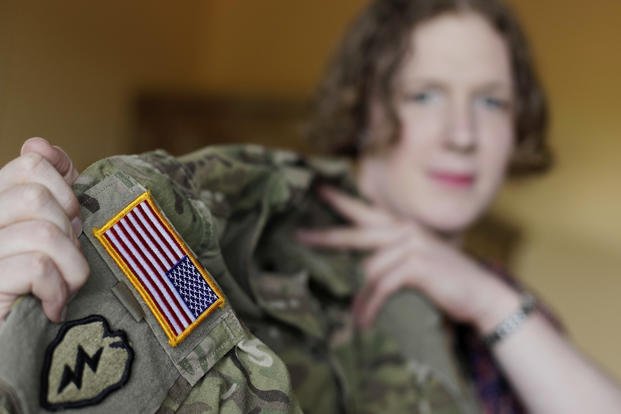Pentagon Committee Created to Direct Book Banning in Service Branches

The Pentagon dramatically expanded efforts to censor and remove books with topics such as diversity and anti-racism by ordering all military branches to scrub libraries of "divisive concepts and gender ideology" and pull those materials from shelves, according to a memo issued Friday[1].
The memo, signed by the acting deputy under secretary of defense for personnel and readiness, directs all military educational institutions, specifically noting war colleges and the service academies, to "promptly" identify books on about 20 topics and set them aside by May 21.
The memo also announces the creation of a temporary Academic Libraries Committee "consisting of knowledgeable leaders, educators, and library professionals" from across the Defense Department who will work to help identify books for censorship and then help decide their ultimate fate.
Read Next: About 1,000 Troops Slated for Immediate Separation Under Reinstated Transgender Ban[2]
The expanded effort on books at military libraries comes after the Naval Academy[3] was specifically ordered to go through its book collection last month and the Navy released a list of nearly 400 books[4] that were removed from circulation[5].
The list included titles by prominent Black authors such as Maya Angelou as well as Black politicians like Bakari Sellers and Stacey Abrams. The list also included a book on female Jewish experiences in the Holocaust and a midshipman's research thesis.
In April, The New York Times reported[6] the academy still had two copies of Adolf Hitler's manifesto, Mein Kampf, on its shelves.
An Army[7] official told Military.com last month the Army's military academy at West Point[8], N.Y., also compiled a list of books that it felt ran afoul of Defense Secretary Pete Hegseth's orders to strip materials related to diversity and submitted it to the Pentagon. However, unlike the Navy, the Army did not make that list public.
West Point declined to comment on its methodology of how it selected its books, or who was in charge of those decisions.
On Thursday, a tenured professor of philosophy at West Point said the storied military academy was interpreting Hegseth's order "broadly" and conducting "a sweeping assault on the school's curriculum and the faculty members' research" in an op-ed for The New York Times[9].
The professor, Graham Parsons, said he was resigning from his post because the school was "suddenly eliminating courses, modifying syllabuses and censoring arguments to comport with the ideological tastes of the Trump administration."
The new memo appears to try to impose some rigor to the Pentagon's censorship efforts that, to date, have featured vague orders from Hegseth to remove all "news articles, photos, and videos promoting diversity, equity, and inclusion (DEI), including content related to critical race theory, gender ideology, and identity-based programs."
The result was the removal of books that highlighted women who fought in the U.S. Civil War[10]; deleted websites that featured Kristen Griest[11], the first woman to graduate from the Army's famously grueling Ranger School; and lessons in Air Force[12] boot camp that featured the Tuskegee Airmen, the historic Black aviators, and the Women's Airforce Service Pilots.
The removals prompted outrage after becoming public, and some of the content has been restored[13]. However, Hegseth's office has not offered a full accounting of what has been removed to date.
Contained within the memo is a list of standardized topics used by the Library of Congress to direct military officials in their efforts. The list contains such terms as affirmative action, anti-racism, white privilege and discrimination, as well as a host of topics around gender dysphoria and transgender people, including transgender people in the military.
Hegseth and the Pentagon announced they will push forward with a ban on transgender troops[14], saying they are unfit for service, following a Supreme Court decision to lift a lower court's temporary injunction.
After all the books are identified and removed from access by troops, the memo says the library committee will then decide what to do with the material by no later than June.
-- Steve Beynon contributed to this report.
Related: Naval Academy Staff Removed Display on Female Jewish Graduates for Hegseth Visit[15]
© Copyright 2025 Military.com. All rights reserved. This article may not be republished, rebroadcast, rewritten or otherwise distributed without written permission. To reprint or license this article or any content from Military.com, please submit your request here[16].

